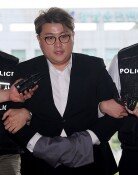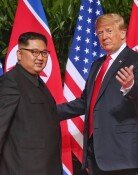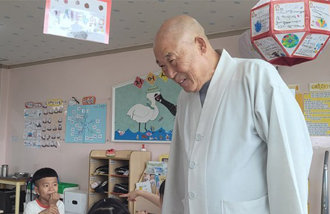Possible to Seek Ways to Solve Energy Shortage Problems After Resolving North`s Nuclear issue
Possible to Seek Ways to Solve Energy Shortage Problems After Resolving North`s Nuclear issue
Posted January. 13, 2003 22:46,
President-elect Rho Moo-hyun met with U.S. Assistant Secretary of State for East Asian and Pacific Affairs and U.S. President Gorge Bush`s special envoy to Korea James Kelly on Jan. 13. During the meeting, President-elect Rho made it clear, It is my position on the issue that I can`t tolerate North Korea`s development of nuclear weapons.
Mr. Rho stressed, It seems that Pyongyang is intending to secure the security guarantee of the regime in the North through carrying out reforms and opening its door to the outside world. And he added that he would make a state visit to the U.S. as soon as possible after taking office in Feb.
The President-elect received U.S. Assistant Secretary of State James Kelly`s courtesy visit that day morning at the central building of the government and during their meeting, he emphasized the importance of maintaining a close alliance between the two countries.
The presence of the 37,000 U.S. troops in Korea will be essential and I will visit and encourage the U.S. soldiers in Korea before inauguration in February, his spokesman Lee Nak-youn quoted the President-elect as talking to the visiting U.S. special envoy.
In response to the President-elect`s remarks, James Kelly stressed, The U.S. has no plans or intention of attacking the North and is ready to open talks on various issues with the communist country if it shows its intention of abandoning the nuclear weapons programs.
If the North`s nuclear issue is resolved, the U.S. will seek possible ways to address the communist country`s energy problem with other relevant countries and private investors, he said in a press conference held right after his meeting with the President-elect.
The President-elect Rho also pointed out the rising Koreans` concerns over unconfirmed U.S. polices on the North, such as waging two wars at the same time, or tailored containment policy on the North. In turn, the U.S. Assistant Secretary of State replied, There are possible ways to deal with the North`s nuclear threat but those are not the U.S. government`s official stance on the issue. The U.S. will make close and continuous consultations with the Seoul government on the issue.
He also said that U.S. President Gorge Bush would send the U.S. delegation of high-raking officials to the President-elect`s inauguration ceremony.
On the same day afternoon, the President-elect met with Japanese Prime Minister Junichiro Koizumi`s special envoy to Korea Yosiro Mori, Chairman of the Association of the Korea-Japan lawmakers and discussed ways to form a cooperative joint front among South Korea, Japan, and the U.S. to diffuse tensions caused by the North`s nuclear threat. After taking office, I will meet with the Japanese Prime Minister in early days and expect to closely work together to achieve peace and co-prosperity in the Northeast region, he said, conveying his intention of making a state visit to Japan after his inauguration. Meanwhile, James Kelly met with Korean Foreign Minister Choi Sung-hong Jan 13. It has been known that James Kelly and Choi Sung-hong reaffirmed their two countries` resolve to address the North`s nuclear issue through diplomatic efforts in spite of the communist country`s recent announcement of pulling out of the Nonproliferation Treaty and hinting its willingness to withdraw a moratorium on missile test-firings.
The U.S. Assistant Secretary of State James Kelly met with South Korean delegates to the U.S. including South Korean special envoy to the U.S. Chyung Dae-chul over dinner.
The South Korean delegates conveyed an intention of visiting the U.S. following their scheduled visit to Japan at the end of this month.






